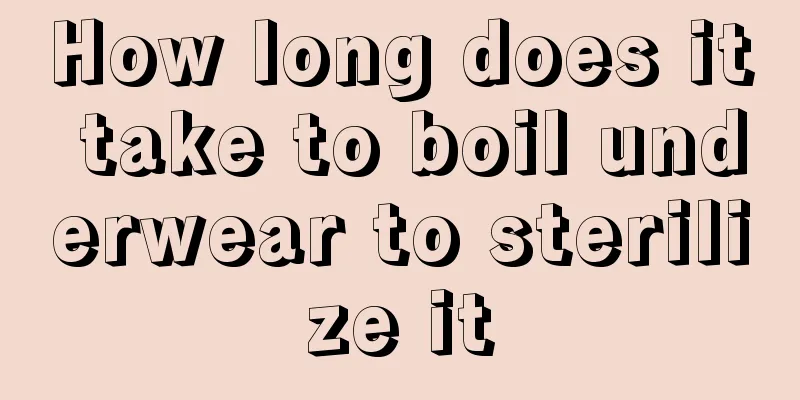The functions and effects of the five internal organs

|
The human body has five internal organs and six bowels. The five internal organs are liver, heart, spleen, lungs, and kidneys. The five internal organs cooperate with each other and complement each other in the human body. Through their joint action, they maintain the normal activities and growth and development of the human body. The five internal organs have their own functions and effects. Any organ is very important to the body, so we must protect our organs well. So today, let’s take a look at the functions and effects of the five internal organs with the editor. Six internal organs: gallbladder, small intestine, stomach, large intestine, bladder, and triple burner. Triple Burner: The area above the diaphragm is called the upper burner, the area between the diaphragm and the navel is called the middle burner, and the area below the navel is called the lower burner. Pericardium: The envelope surrounding the heart. The liver belongs to the wood element, combines with the tendons in the body, and is the exterior and interior of the gallbladder. Its essence is in the fingernails and toenails, and it opens up in the eyes. It is responsible for storing blood. The heart belongs to fire, combines with the meridians in the body, and is the exterior and interior of the large intestine. Its brilliance is on the face, its orifice is on the tongue, and it governs the blood vessels. The spleen belongs to the earth element, combines with the flesh in the body, and is the exterior and interior of the stomach. Its flower is on the lips, and it opens up in the mouth. It is responsible for regulating blood. The lungs belong to metal and are located in the body and skin. They are the exterior and interior of the small intestine, and their orifices are the nose. The kidney belongs to water, combines with the bones in the body, and is the exterior and interior of the bladder. Its beauty is in the hair. Wood produces fire, fire produces earth, earth produces metal, metal produces water, and water produces wood. Wood overcomes earth, earth overcomes water, water overcomes fire, fire overcomes metal, and metal overcomes wood. 2. Function 1. Heart and small intestine: The heart is the most important organ among the internal organs and plays a leading and controlling role. However, traditional Chinese medicine believes that the heart controls the mind and is related to people's thinking and conscious activities. For example, we often say "think with your heart", which refers to the role of the heart in people's thinking activities. The heart is the driving force of the human body's blood circulation. Blood is transported to the whole body through the beating of the heart. The strength or weakness of the heart's blood can be reflected in the pulse. The heart controls sweat and opens up to the tongue. Changes in the tongue quality can reflect the physiological and pathological changes of the heart. The small intestine is located in the abdominal cavity. Food and water digested by the stomach enter the small intestine for further digestion, absorption of nutrients and elimination of waste. If there is a problem with the small intestine, digestion and absorption dysfunction will occur, and abnormal urination and defecation, such as abdominal pain, diarrhea, oliguria and other symptoms. The heart and small intestine are mutually exterior and interior. The heart belongs to the interior and the small intestine belongs to the exterior. The yang energy of the heart descends to the small intestine, helping the small intestine distinguish the essence and dregs in food. If the heart fire is excessive, it can transfer heat to the small intestine, causing symptoms such as short and dark urine, burning pain, and hematuria. Conversely, heat in the small intestine can also cause excessive heart fire, causing symptoms such as irritability, flushed face, and mouth and tongue sores. 2. Liver and Gallbladder: The liver has the function of regulating certain mental and emotional activities, storing blood and regulating blood volume, and assisting the spleen and stomach in digesting food. The liver opens up to the eyes, and liver disease often causes various eye diseases. The gallbladder is attached to the liver, and the bile stored in the gallbladder is secreted by the liver. "It borrows the excess qi of the liver, overflows into the gallbladder, and accumulates." The liver and gallbladder are mutually exterior and interior. Only when the liver's secretion function is normal can the storage and excretion of bile be normal. Only when the excretion of bile is smooth can the liver exert its secretion function. The liver and gallbladder affect each other when they are diseased, so they should be treated together. 3. Spleen and stomach: The spleen and stomach are responsible for the digestion, absorption and transmission of nutrients and water of food to meet the needs of various tissues and organs of human life activities, so there is a saying that "the spleen and stomach are the foundation of acquired constitution". In addition, the spleen has the functions of regulating water, controlling blood, and controlling muscles and limbs. The stomach's main function is to digest food. The spleen and stomach are the main organs for digesting food. The meridians of the two are interconnected, forming an exterior-interior relationship. The stomach is responsible for receiving and the spleen is responsible for transporting and transforming, and they work together to complete the tasks of digestion, absorption and transportation of nutrients. The stomach is responsible for descending, so food and water can go down and be digested easily. The spleen is responsible for ascending, so the essence of food and water can be distributed throughout the body. 4. Lungs and Large Intestine: The lungs are connected to the trachea and throat, and open to the nose. The lungs are the respiratory organs whose main function is to control the qi of the whole body. When the lungs function normally, the airways are unobstructed and the breathing is even and regular. If the lung qi is insufficient, symptoms of general weakness such as weakened breathing, fatigue, shortness of breath and spontaneous sweating may occur. The lungs are responsible for descending and regulating the water channels, transporting urine to the bladder, and maintaining smooth urination. The main function of the large intestine is to absorb water and excrete feces. The lungs and large intestine form an exterior-interior relationship. The conduction of the large intestine depends on the descending of the lung qi. When the lung qi descends, the stool conduction is normal and the feces are discharged smoothly. If the large intestine is stagnant and blocked, it will in turn affect the descending of lung qi. 5. Kidney and bladder: The main function of kidney is to store essence. One refers to the essence inherited from parents, called innate essence, which is the foundation of human reproductive development; the other refers to the essence of water and grain from the spleen and stomach, called acquired essence, which is the material basis for maintaining human life activities. The kidneys store the fire of the life gate. Insufficient fire of the life gate often leads to weakness of the body's yang energy and various diseases. The kidneys control water, bones, and produce marrow, and are closely related to human reproduction, growth and development, aging, and water metabolism. The main functions of the bladder are to store and excrete urine. The urination function of the bladder is closely related to the strength of kidney qi. If the kidney qi is sufficient, urine can be secreted into the bladder and discharged from the body in time. If the kidney qi is deficient and cannot be retained, frequent urination, enuresis or incontinence will occur. If the kidney qi is deficient and cannot transform into qi in time, urinary retention or difficulty urinating will occur. |
<<: The role and function of calcium, magnesium and zinc
>>: How to remove tea stains from a thermos cup
Recommend
What are the symptoms of ovarian tumors
The appearance of ovarian cancer is a kind of har...
What are the methods to improve eyesight
Eye fatigue is very likely to occur if the eyes a...
What foods can reduce internal heat?
Nowadays, everyone prefers to eat spicy food, suc...
Prostate cancer examination indicators
Prostate cancer is a malignant tumor that occurs ...
When is the best time to take Chinese medicine? Time to take Chinese medicine
There are certain taboos when taking traditional ...
What is the healthiest lip color?
Generally, normal people's lips are red, mois...
How long can you live after surgery for advanced liver cancer
How long can you live after surgery for advanced ...
What are the benefits of squat training
For many friends who like fitness, squats need to...
What to do about anxiety?
Due to work pressure, the pace of modern people&#...
How is a pituitary tumor detected
In our daily life, we should pay attention to som...
Is it true that depression can be cured by taking medicine for one month?
People rarely encounter mental illnesses in their...
What measures can improve blood circulation?
The role of blood circulation in physical health ...
How is testicular cancer diagnosed?
The testicle is an important organ for men. Once ...
What to eat to prevent liver cancer? Eating more of these four types of food can prevent liver cancer
If liver disease is not well maintained, it will ...
How to wash lychee juice off clothes
Lychee juice is difficult to clean up. If you acc...









